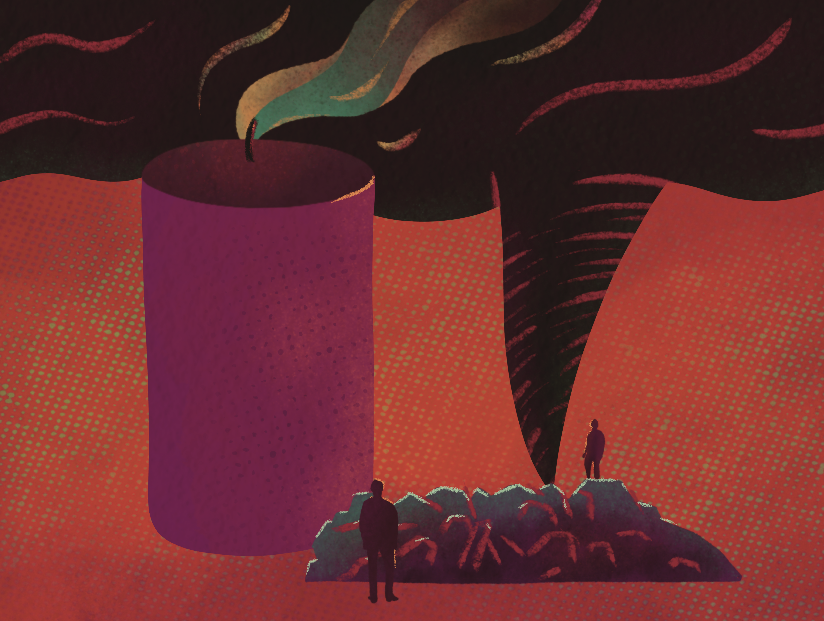I Reckon: December’s tornadoes in the South calls for safety regulations

In early December, a series of tornadoes tore through parts of western Kentucky, leveling buildings and leaving Graves County and the county of Mayfield in ruins. As it crossed through multiple states, it left 78 people dead and more missing in Kentucky alone.
The tornadoes terrorized eight states in the Central and Southern United States and raised alarms far before the twisters ever touched the ground. Employees at the Mayfield Consumer Products factory in Kentucky reported hearing extreme weather warning sirens as the tornado approached their town. Many workers urged their managers to let them go home to take cover in preparation for the storm to pass. According to many of the employees, their requests were denied.
The tornado completely leveled the factory, leaving nine dead. Those who managed to survive narrowly escaped death by flying rubble and chemicals; however, they didn’t make it out unscathed. McKayla Emery, a 21-year-old employee of the Mayfield Consumer Products factory, was trapped for six hours under a cement wall with chemical burns on various places on her body.
Unfortunately, neglectful management was not unique to the Mayfield Consumer Products factory during December’s series of twisters. Around the same time in Illinois, an EF-3 tornado caused major structural damage to an Amazon warehouse, leaving six people dead and at least one injured. The Occupational Safety and Health Administration announced that it opened an investigation into the causes of the warehouse collapse, which raises questions as to whether federal officials have reason to believe that the Amazon warehouse wasn’t up to code.
While the surrounding neighborhoods that were able to take shelter had minor damage, the indifference to the welfare of the factory’s employees came at the cost of their workers’ lives.
Even if OSHA found that the building wasn’t up to code, there isn’t much preventing flimsy deathtraps from being built up again. According to The Washington Post, there are no federal requirements for warehouse shelters specially built to withstand extreme storms. There’s nothing preventing Amazon and Mayfield Consumer Products from putting poorly made warehouses and factories back up. Frankly, there’s nothing stopping them from contributing to the climate crisis that causes the same extreme weather events that leveled their buildings and left their employees dead.
It doesn’t take a pessimist to realize that tragedies like these will continue to happen unless clear, enforceable regulations are put in place. To corporate giants like Amazon who are already hellbent on squashing unionization attempts, it wouldn’t be far-fetched to assume that workers and buildings are all expendable. So as long as they can hold the prospect of more pay or the termination of a job over the heads of their employees, these companies continue to get away with their half-hearted attempts to promote worker safety.
The tragedies caused by the December tornadoes can’t only be blamed on the inaction and neglect of Amazon and the Mayfield Consumer Products company. The federal government has the responsibility to hold these companies accountable for neglecting employee safety and producing the waste that contributes to the climate crisis.
Workers, especially those in the South, shouldn’t be forced to choose between making ends meet or being injured or killed in an ecological catastrophe. In failing to equip agencies, like OSHA, with more power to enforce safety standards, the federal government essentially washes its hands of any duty to protect working-class people from predatory and neglectful labor practices.
The coronavirus pandemic has made working-class folks realize that they should never be forced to choose between death and barely livable wages. Collective action on the worker front is powerful, but without adequate federal regulations in place to hold workplaces accountable for employee safety, what happened in Kentucky and Illinois will happen again.
Quynh Anh Nguyen is a sophomore writing about the implications of current Southern political events in her column “I Reckon.”

